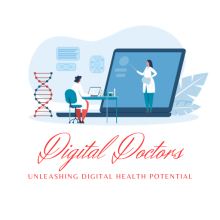Inspirational journeys
Follow the stories of academics and their research expeditions
Remote Healthcare Marketing Strategist: How to Get Started, Find Opportunities, and Excel in the Industry

Introduction
The healthcare industry is undergoing a significant digital transformation, creating an increasing demand for remote professionals who can develop compelling marketing strategies. A Remote Healthcare Marketing Strategist plays a crucial role in bridging the gap between healthcare providers, organizations, and their target audience through digital marketing, content creation, branding, and patient engagement strategies. If you have a passion for both healthcare and marketing, this career path offers vast opportunities for growth, flexibility, and financial stability.
This comprehensive guide explores the essential qualifications, required licenses, salary expectations, job opportunities, how to apply, networking strategies, and even entrepreneurial options. Whether you're starting out or looking to transition into a remote healthcare marketing role, this guide will help you navigate the field effectively.
Minimum Qualifications & Skills Required
To become a successful Remote Healthcare Marketing Strategist, you don’t necessarily need a medical degree. However, a background in marketing, healthcare, communications, or business is highly beneficial. Here are the key qualifications:
Educational Background
-
Bachelor’s degree in Marketing, Digital Marketing, Communications, Public Relations, Business, or a related field.
-
Alternatively, a degree in Healthcare Administration, Nursing, or Public Health with a marketing certification can also be valuable.
-
A Master’s degree (MBA in Healthcare Management or Digital Marketing) is a plus but not mandatory.
Key Skills & Competencies
-
Strong knowledge of digital marketing strategies (SEO, PPC, social media, email marketing, etc.).
-
Experience with healthcare compliance and regulations (HIPAA, GDPR, FDA regulations for health-related advertising).
-
Proficiency in content marketing, healthcare blogging, and patient education strategies.
-
Familiarity with marketing automation tools (HubSpot, Marketo, Mailchimp).
-
Ability to analyze healthcare market trends and craft data-driven marketing campaigns.
-
Knowledge of healthcare technology trends such as telemedicine, digital therapeutics, and AI in healthcare.
-
Strong networking and business development skills.
-
Excellent communication, storytelling, and branding skills.
-
Analytical thinking with expertise in performance metrics and key marketing indicators.
-
Ability to work with multidisciplinary teams including healthcare professionals, IT developers, and regulatory experts.
-
Knowledge of healthcare SaaS marketing and growth hacking strategies to scale digital health startups.
-
Experience in healthcare email marketing automation, patient engagement campaigns, and CRM tools like Salesforce.
-
Understanding of video marketing strategies for healthcare education and promotion.
Licenses & Certifications
While a marketing strategist does not require formal licensing, obtaining industry-relevant certifications can significantly boost credibility and marketability. Consider earning certifications such as:
-
Google Digital Marketing & E-commerce Certificate (Google)
-
HubSpot Content Marketing Certification (HubSpot)
-
Facebook Certified Digital Marketing Associate (Meta)
-
Certified Digital Marketing Professional (CDMP) (Digital Marketing Institute)
-
HIPAA for Marketing & Compliance Training (HIPAA Journal)
-
Google Analytics Certification (Google Skillshop)
-
LinkedIn Marketing Strategy Certification (LinkedIn Learning)
-
Pharmaceutical Marketing & Digital Strategy Courses (Available on Coursera and Udemy)
-
SEO for Healthcare Professionals Certification (offered by various digital marketing training platforms)
-
Advanced Email Marketing for Healthcare & Life Sciences certification
-
AI in Healthcare Marketing Strategies certification (covering machine learning and predictive analytics for healthcare marketing)
Salary Expectations
Salary depends on experience, qualifications, and geographical region, but here’s a general estimate:
-
Entry-Level: $50,000 - $70,000 per year
-
Mid-Level: $70,000 - $100,000 per year
-
Senior-Level: $100,000 - $150,000 per year
-
Freelance/Consultant: $50 - $200 per hour, depending on expertise
Salaries can be significantly higher for specialists in pharmaceutical marketing, AI-driven healthcare marketing, or digital health growth strategy.
Where to Apply: Job Boards, Companies, and Organizations
Actively Hiring and Recruiting Agencies
-
AMN Healthcare (amnhealthcare.com)
-
Syneos Health (syneoshealth.com)
-
IQVIA (iqvia.com)
-
Crossover for Work (crossover.com)
-
Brafton (brafton.com)
Job Boards for Remote Healthcare Marketing Roles
-
LinkedIn Jobs (linkedin.com/jobs)
-
FlexJobs (flexjobs.com)
-
We Work Remotely (weworkremotely.com)
-
Indeed (indeed.com)
-
Glassdoor (glassdoor.com)
-
AngelList (angel.co) – Ideal for startups
-
People Per Hour (peopleperhour.com)
-
Toptal (toptal.com) – High-end freelance network
Networking & Personal Branding Strategies
Optimize Your LinkedIn Profile
-
Use a professional headline that includes “Remote Healthcare Marketing Strategist.”
-
Craft a compelling summary with achievements and key skills.
-
Add relevant keywords (digital health marketing, patient engagement, medical branding).
-
Showcase certifications, projects, and case studies.
-
Write thought leadership articles about healthcare marketing trends.
Join Industry Groups & Associations
-
Healthcare Marketing & Physician Strategies Summit
-
American Marketing Association (AMA) – Healthcare Sector
-
Healthcare Information and Management Systems Society (HIMSS)
-
LinkedIn Groups: Digital Health Professionals, Healthcare Marketing Network
Entrepreneurship, Innovation & Self-Employment in Healthcare Marketing
If you prefer working for yourself, consider starting a Healthcare Marketing Consultancy or Digital Health Content Agency. Here’s how:
Step 1: Identify a Niche
-
Telehealth & Virtual Care Marketing
-
Medical Device Marketing
-
Pharma Digital Marketing
-
Patient Education & Engagement Strategies
-
AI & Data-Driven Healthcare Growth Marketing
Step 2: Build a Portfolio
-
Create case studies or mock campaigns.
-
Launch a blog or YouTube channel discussing healthcare marketing trends.
-
Offer free services to build credibility.
Step 3: Acquire Clients
-
Use freelancing platforms like Upwork, Fiverr, and Toptal.
-
Build partnerships with telehealth providers and digital health innovators.
Step 4: Scale Your Business
-
Develop automated marketing services.
-
Offer subscription-based services for recurring revenue.
Conclusion
A career as a Remote Healthcare Marketing Strategist offers financial growth, flexibility, and impact. The demand for digital health marketing continues to rise, making now the best time to start your journey!
Tags:
remote healthcare marketing digital health marketing healthcare strategist medical marketing jobs telehealth marketing healthcare marketing certifications freelance healthcare marketing remote medical marketing health tech marketing healthcare branding pharmaceutical marketing HIPAA marketing compliance digital health jobs0 Comments
Categories
- Career Development and Opportunities in Digital Health 166
- White Papers 39
- IELTS For Medical Professional 35
- OET Exam Preparation 30
- Entrepreneurship and Innovation 26
- Healthcare Innovation 17





Leave a comment